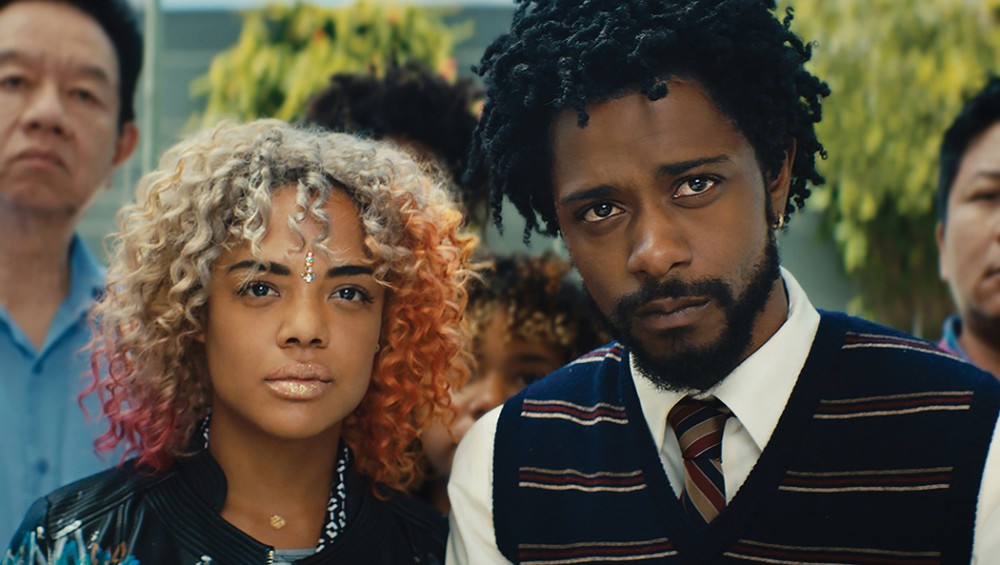BlacKkKlansman, Sorry to Bother You, and the “white voice”
If whiteness is a fiction, it's one that does a lot of damage.

In both Spike Lee’s BlacKkKlansman and Boots Riley’s debut film Sorry to Bother You, a key plot device is a black character using a “white voice” on the phone. This device is played for laughs, but it allows each director to say something serious about race and class.
In BlacKkKlansman (based loosely on real events), Ron Stallworth (John David Washington) is the first black officer on the Colorado Springs police force in 1979. Trying to climb the ranks of his investigating unit, he calls a number advertising the Ku Klux Klan in the local paper, pretending to be an angry white man eager to learn more about the organization. The Klan takes the bait. Obviously Ron can’t show up for a cross burning in person, so he convinces a white partner, Flip Zimmerman (Adam Driver), to act as his body double. “Black Ron” keeps working the Klan on the phone and “white Ron” shows up in person.
A lot is made of whether Ron can “talk white.” His superior officers argue that a white man would immediately hear racial difference in a voice, though Ron insists that he is fluent in both “jive and the King’s English.” After Ron proves them all wrong and gets in so deep with the Klan that he is having regular phone conversations with David Duke himself, he asks the Grand Wizard if he can tell the difference between a black man and a white man on the phone. Duke (Topher Grace) insists that yes, of course he can, and proceeds to give Ron a lesson on how black people talk.




